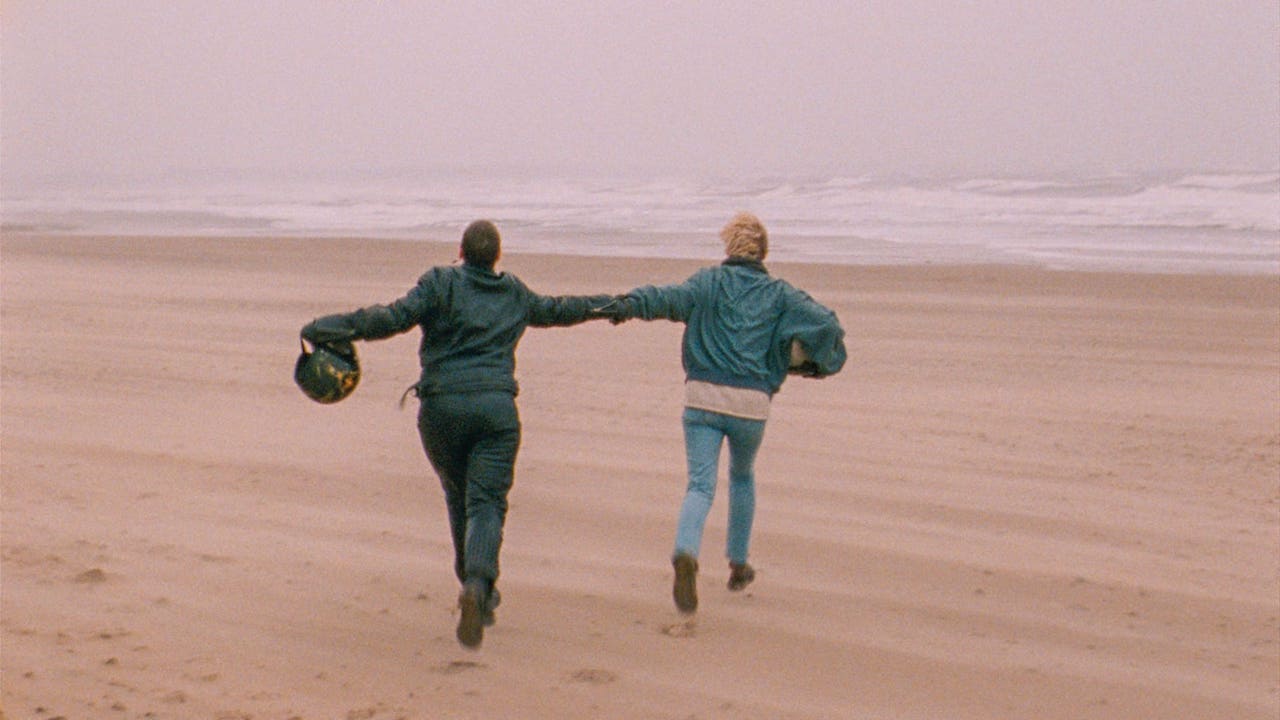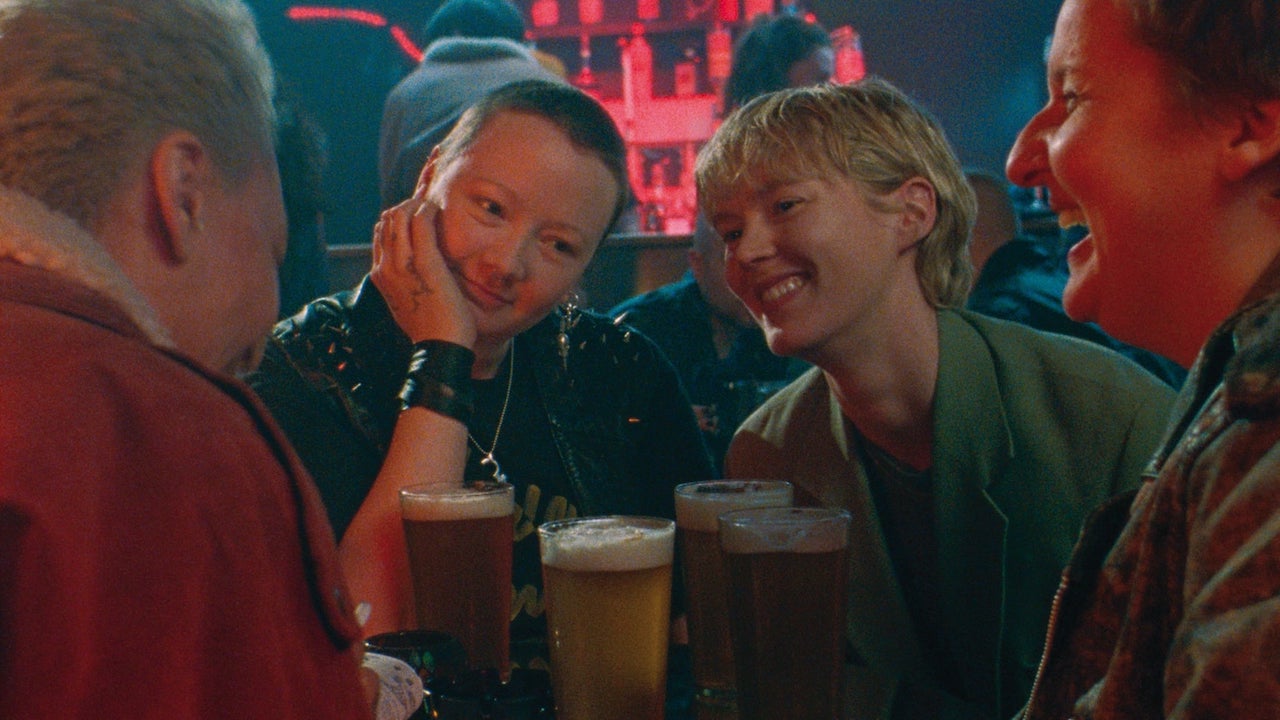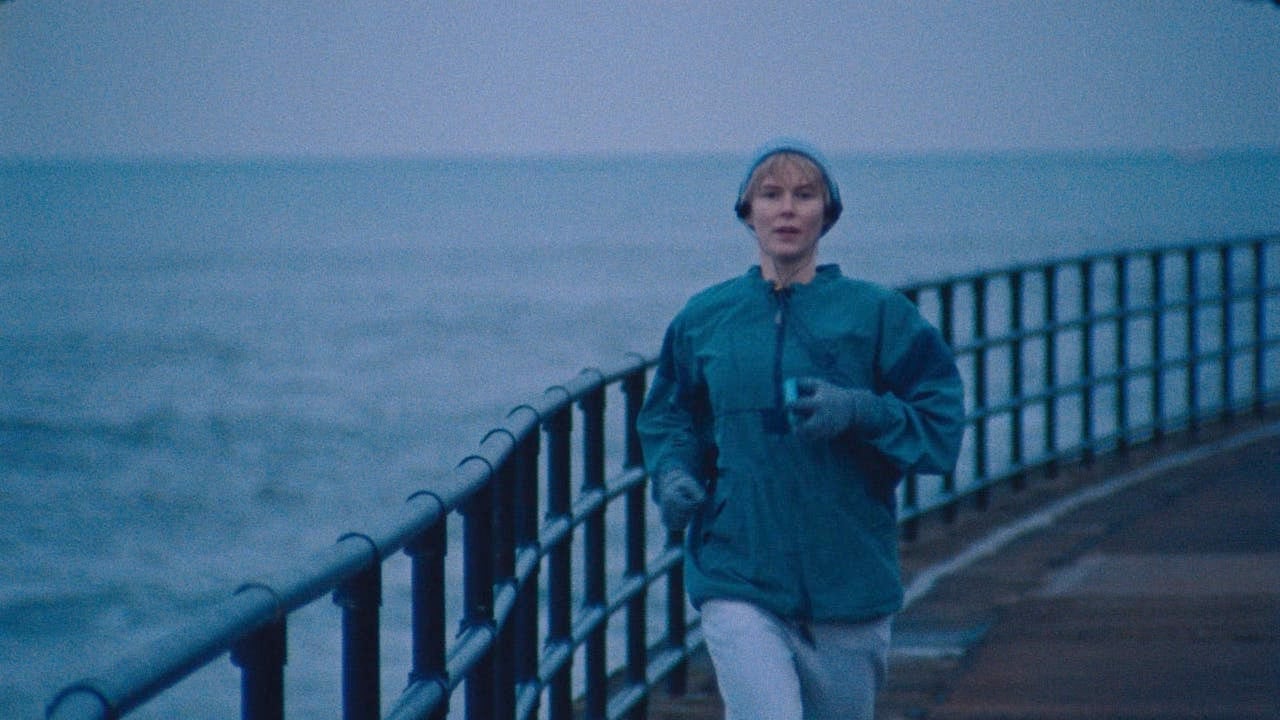Blue Jean is a tense, tender, and affirming window into queer joy—and fear

Eliza Janssen classes Blue Jean as part of a movement of the terrific British films being made by female first-time directors. Following a closeted schoolteacher whose livelihood is at stake, the movie is bruising and beautiful at once.
“I’m talking about instincts”, PE teacher Jean Newman announces to her class, rallying them with netball tips that she expertly employs outside of school hours: “Fight or flight…the body responds far quicker than the brain.”
Played by Rosy McEwen, the title character of Blue Jean is constantly facing that cruel, decisive binary: should she stay in her precarious double life, or should she go? Because Georgia Oakley’s assured, tender debut feature is set in Thatcher’s England (Newcastle in 1988, to be precise), where a proposed legislation threatens the freedoms and livelihoods of queer people like Jean. If her lesbianism were ever outed at the school where she teaches, our lead could be accused of corrupting so-called “traditional moral values”…promoting homosexuality as “a pretended family relationship”. Whatever the hell that means.
Jean has a passionate relationship with her mouthy girlfriend Viv (Kerrie Hayes), a clique of proud and loud mates, and a solid job, all of which are threatened by the proposed Clause 28 restrictions. And then there’s Jean’s ungainly new netball student Lois (Lucy Halliday), who turns up at the same gay bar Jean frequents, shocking her teacher’s closet doors ajar. Blue Jean manages to work our nerves on both a familiar, personal level and a historical sapphic perspective that will, in its strongest moments, ring true to any queer viewer: it can feel as painful and particular as the untold stories of desire in some discovered 1980s diary.
Even when Oakley’s script drives home these conflicts a little too neatly, there’s a rawness to the character dilemmas that feel as though they could be wrought from one woman’s specific history. For every slightly obvious line of dialogue or visual metaphor—an eerie school gym dream sequence, horses on the horizon once Jean rediscovers her freedom—there’s a shot of McEwen, totally embodying her character’s burgeoning anxiety, to say it all with so much less.
The director and star are an ideal team, Oakley’s intimate camera gradually cracking open McEwen’s detached, chilly elegance (she reminds me of Rosamund Pike, in poise as well as physical resemblance). The confidence of Blue Jean posits Oakley amongst the recent class of young, British, first-timer directors, all of whom happen to be women, telling emotionally gripping stories: Charlotte Wells’ Aftersun, Molly Manning Walker’s How To Have Sex, and, on the lighter side, Raine Allen-Miller’s Rye Lane.
When Lois bumbles into Jean’s classroom—and then into her favourite lesbian nightlife spot—the two women clock one another at once. It could be Jean’s bleached short hair; could be Lois’ tomboyish athletic skills; could be something invisible they can just sense in one another. Halliday is pretty terrific, too, as a baby gay who hasn’t faced the prejudice of the adult world as much as her tightly-wound teacher has.

The movie’s 80s setting is vital—for a grim window into its decade’s conservative hate-mongering, sure, but also for the soundtrack’s sick, sweaty nightclub bangers, including New Order and The Larks. But Lois is really a stand-in for any minority group’s next generation: her bravery, or perhaps just her heartbreaking, childlike naïvety, forces Jean to question her responsibility to her community.
At first I was anxious about the protagonist of this film about an oppressed group forced to hide in plain sight. Jean is the quietest of her mates, the most outwardly respectable to a heteronormative society; she has a day job in the straight world, and even gave marrying a bloke a try. Are we meant to see her as a saintly “model minority” who gets punished for the rebellion and pride of…more lesbian-y lesbians? Nope, you don’t need to worry about that at all.
By gripping tight to her straight life until her knuckles turn white, even as her silence and inaction begins to hurt Viv and Lois, Jean spirals into betrayal—of her community and loved ones, but also of herself. “Not everything is political”, she tells Viv, trying to excuse her indecision regarding the existential threat she faces at work everyday. “‘Course it is”, Viv replies: a bit of wisdom that might feel far more obvious, more easily contextualised, to 2023 viewers than it does to 1988 Jean. The lovers have few choices in the face of state-sponsored hate crimes…but a choice has to be made.

As the walls close in around Jean and lies by omission warp into scandal, Oakley keeps us trained on the character’s stifling worldview. The colour of the film’s title washes over Jean’s sterile home one moment, giving way to the explosive queer joy of a red-lit nightclub soon after. Blazing hot and aching cool tones follow one another, giving the viewer some sense of the turbulent code-switching our lead must undertake.
Like Jean, the film mostly does a terrific job of balancing its double-life double-act, making room for sensitive, perfectly acted moments amongst a broader, still-cutting social critique. Unlike Jean, Oakley’s film also seems to have a hopeful, honest future in mind—imagining what feels like a happy ending for Lois. For any Loises in the audience, too. Grown, or young and lucky enough to have no clue what Clause 28 even was.



















